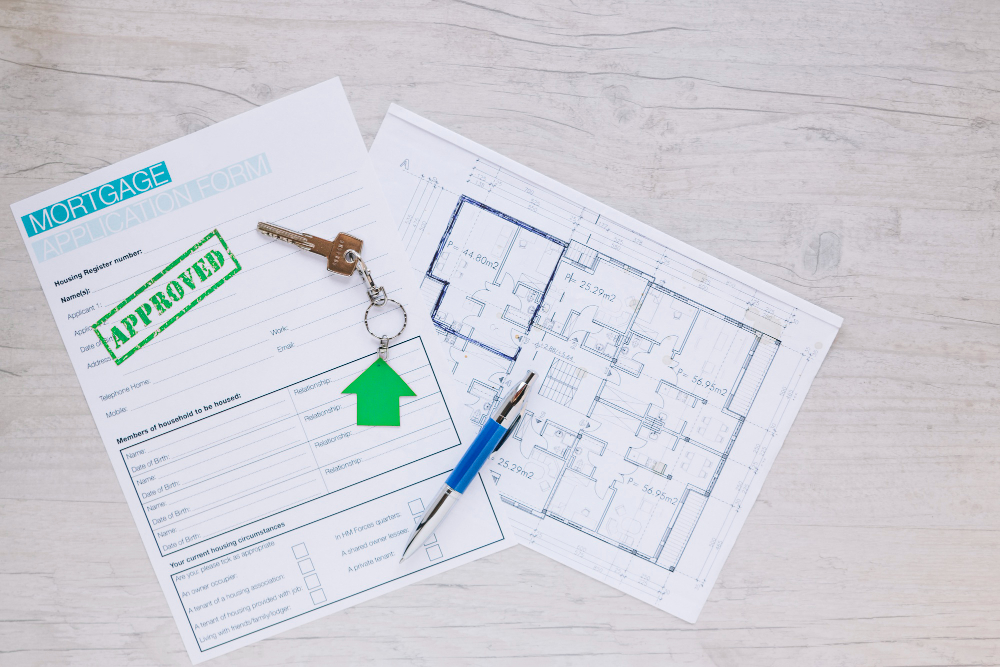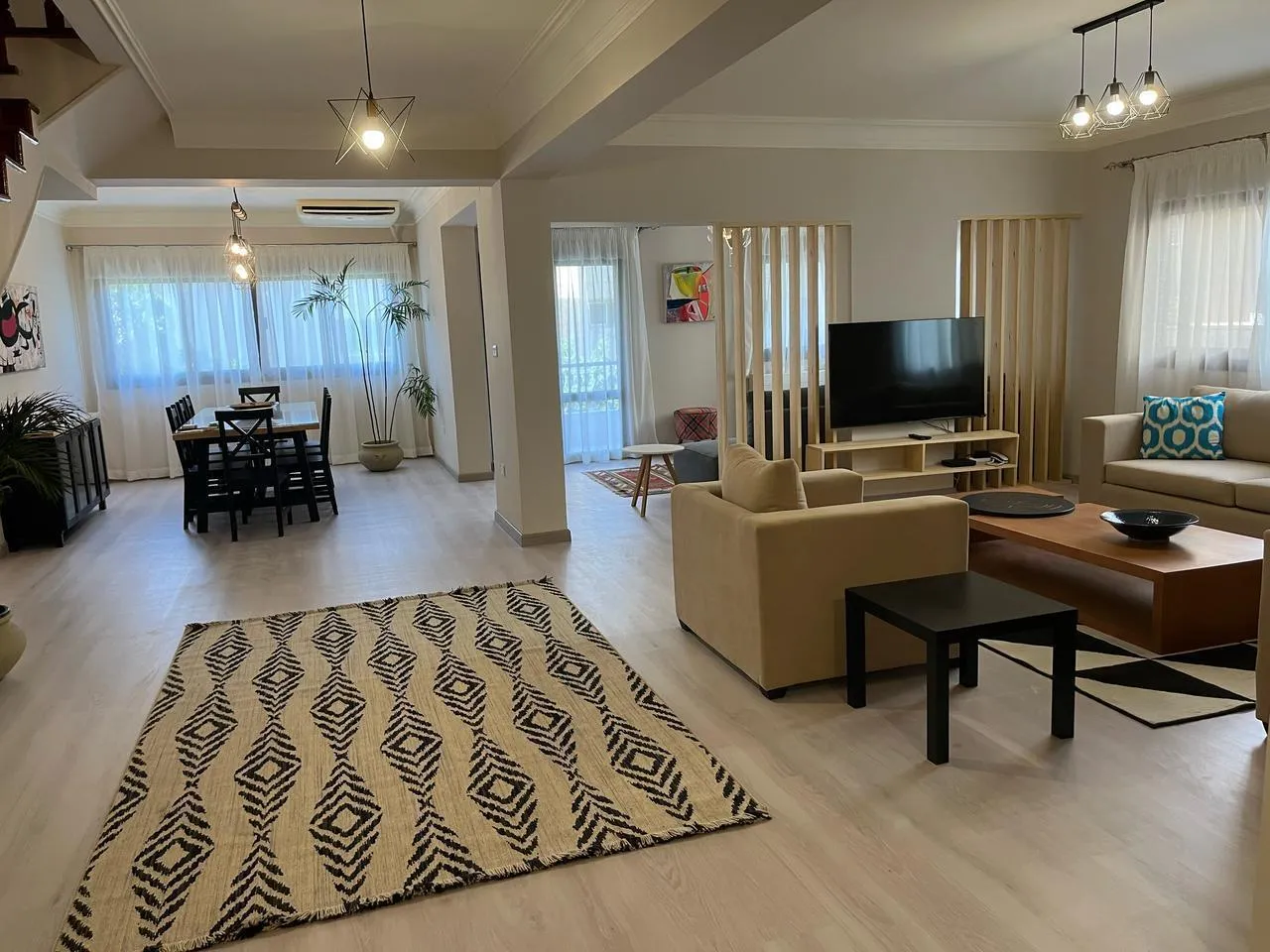Navigating Your First Lease: Essential Tips for Renting a Property for the First Time
الكاتب
Ali Ashour
الوقت
13 دقيقة
اللغة
الانجليزية
كتبت بتاريخ:
3/23/2024
تم التحديث:
4/15/2024
Renting a property for the first time can be a milestone moment, filled with both excitement and uncertainty. For first-time renters, navigating through the vast options of rental properties, from apartments to single-family dwellings, demands precise consideration of budget, location, and the type of management involved. Understanding the essentials of leasing, such as the significance of lease agreements and the role of a property manager, is crucial in making an informed decision that aligns with one's needs and ensures a smooth renting experience.

This article aims to equip first-time renters with essential tips and knowledge on various aspects of renting a home for the first time. From demystifying lease agreements and budgeting beyond monthly rent to evaluating neighborhood safety and the importance of engaging a reliable real estate agent, readers will find guidance on managing financial insecurities, addressing maintenance concerns, and making the most out of their first leasing journey. Whether it's renting an apartment or a house, these insights will pave the way for a more secure and informed rental experience.
Understanding Lease Agreements
Understanding the intricacies of a lease agreement is pivotal for renters stepping into the property market for the first time. A lease is not just a document but a legally binding contract that outlines the responsibilities and rights of both the tenant and the landlord. Here's a breakdown of key components to look out for:

- Key Elements of a Lease Agreement:
- Basic Information: Includes names of the tenant(s), landlord, property description, and contact details.
- Financial Obligations: Details on rent, security deposit, payment due dates, and bank details.
- Property Rules: Guidelines on pets, moving in/out procedures, and behavior restrictions.
- Maintenance and Repairs: Responsibilities of the landlord in keeping the premises habitable.
- Lease Duration: Specifies whether it’s a fixed-period or an indefinite contract, along with terms for termination or extension.
- Tenant and Landlord Rights:
- Tenant: Right to privacy, to a habitable property, and to complain about housing law violations.
- Landlord: Right to evict for nonpayment or lease breaches, enter for legitimate reasons, and expect property maintenance.
- Legal and Financial Protections:
- Security Deposits: Limitations on amounts and conditions for return.
- Eviction and Entry Notices: Laws governing eviction procedures and landlord’s right to enter.
- Additional Fees: Understanding late fees, maintenance charges, and other potential costs.
Navigating through these components with the help of a real estate agent or a legal professional can ensure a fair and protective agreement for both parties involved.
Budgeting Beyond Monthly Rent
When renting a property for the first time, it's crucial to look beyond the monthly rent to fully understand the financial commitment involved. Here are essential considerations:
- Initial and Recurring Costs:
- Upfront Costs: Be prepared for the first month's rent, security deposit, and potentially a broker's fee. Additionally, consider the cost for background and credit checks.
- Monthly Expenses: Beyond rent, factor in utilities (gas, electricity, possibly water and sewer), renters insurance, and internet/cable services. Remember, some utilities may be included in your rent.
- Maintenance and Emergency Fund: Set aside at least 10% of your rental income for repairs and maintenance. It's also wise to have a cushion for unforeseen emergencies.
- Budgeting Framework:
- Follow the 50-20-30 rule, allocating 50% of your net income to needs (including rent and utilities), 20% to savings, and 30% for wants. This framework helps ensure you're not stretching yourself too thin.
- Long-Term Considerations:
- Insurance: Homeowners insurance for rental properties can be about 25% higher than standard policies. Ensure you're adequately covered.
- Property Taxes and HOA Fees: These are ongoing costs that don't disappear even when the property is paid off or unoccupied. HOA fees are particularly relevant for condos and townhouses and cover the maintenance of common areas.
Evaluating Neighborhood Safety and Property Security
When evaluating neighborhood safety and property security, it's essential to consider several factors that contribute to a secure living environment. Here's a breakdown to guide first-time renters:
- Neighborhood Assessment:
- Proximity to work or school and transportation options.
- Noise levels and access to local attractions.
- Online resources like SpotCrime for local crime rates.
- Presence of well-lit streets, parks, and community engagement through neighborhood watch programs.
- Property Security Features:
- Adequate lighting in common areas, hallways, and parking lots.
- Secure locks on doors and windows, with added measures like peepholes, chain locks, or smart locks.
- Installation of security cameras or doorbell cameras for monitoring.
- Encouragement of community measures like neighborhood watch programs and resident awareness.
- Personal Security Measures:
- Utilization of blinds or curtains to maintain privacy.
- Additional door locks and security bars for enhanced protection.
- Investment in a safe for valuable items and important documents.
- Preparation for emergencies with kits and plans, and the use of smart home devices for improved security.
These considerations ensure not only the safety of the property but also contribute to the overall well-being and peace of mind of the residents.
The Importance of a Reliable Real Estate Agent
A reliable real estate agent is an invaluable asset when renting a property for the first time. They play a pivotal role in ensuring that first-time renters find quality houses in desirable locations and that the properties are in good condition. Here are key ways in which real estate agents assist first-time renters:

- Finding the Right Property:
- Access to a wide range of properties through professional connections.
- Ability to find budget-friendly and well-located properties, including exclusive "pocket listings."
- Expertise in narrowing down choices based on renter's preferences and budget.
- Navigating the Rental Process:
- Assistance with scheduling property tours in competitive markets.
- Handling of paperwork, making the application process smoother.
- Marketing of the property through various channels to find suitable tenants quickly.
- Ongoing support throughout the tenancy, including help with lease renewals or terminations.
- Protection Against Scams:
- Screening of listings to ensure legitimacy.
- Negotiation of rental terms and acting as a reliable witness during transactions.
- Ensuring the leasing process is handled legally, providing dependable and respectful renters.
Real estate agents, through their experience, connections, and systematic approach, significantly simplify the rental process for first-time renters, making it less daunting and more efficient.
Managing Financial Insecurity and Expenses
Managing financial insecurity and expenses as a landlord involves a strategic approach to ensure both the property's upkeep and the satisfaction of your tenants. Here are critical steps to maintain financial stability:

- Budgeting for Property Management:
- Income Sources: Rent, additional fees (e.g., pet fees).
- Expenses: Mortgage, insurance, maintenance, property management fees.
- Emergency Fund: Allocate funds for unexpected repairs or vacancies.
- Cash Flow Calculation: Revenue minus expenses to assess profitability.
- Maintenance and Upgrades:
- Preventive Maintenance: Regular inspections and timely repairs.
- Upgrades: Investing in flooring, paint, and appliances enhances appeal and functionality, potentially increasing rental income.
- Cleaning: Ensure a clean living space between tenancies to attract quality tenants.
- Tenant Relations and Legal Compliance:
- Educate Tenants: On responsibilities and property care.
- Legal Awareness: Understand landlord-tenant laws to protect both parties.
- Security Deposits: Typically equal to one month's rent, covering damages or unpaid rent.
Implementing these strategies helps in managing financial insecurity, ensuring the property remains competitive and profitable while fostering a positive landlord-tenant relationship.
Addressing Maintenance and Safety Concerns
Navigating maintenance and safety concerns in a rental property requires both the landlord and tenant to understand their responsibilities and rights. Here’s a breakdown to ensure a smooth handling of these issues:
Tenant Responsibilities:
- Minor Repairs and Maintenance: Tenants are responsible for minor repairs and maintaining the cleanliness of the property. This includes:
- Disposing of garbage properly.
- Keeping plumbing fixtures clean.
- Using electrical and plumbing fixtures properly.
- Not causing intentional damage to the property.
- Safety Measures: Tenants should:
- Install heavy-duty deadbolts or security bars.
- Use safes or safety deposit boxes for valuables.
- Change locks upon moving in to ensure security.
- Regularly check smoke and carbon monoxide detectors.
Landlord Responsibilities:
- Major Repairs: Landlords are responsible for structural issues and major repairs. They should:
- Conduct regular inspections and maintenance.
- Use certified vendors for repairs to ensure quality.
- Ensure tenant satisfaction post-repair.
- Property Security: Landlords must ensure:
- Adequate lighting in common areas.
- Secure locks on doors and windows.
- Installation of security cameras or doorbell cameras, where applicable.
Collaborative Efforts for a Safe and Maintained Property:
- Communication: Tenants must promptly report any maintenance issues or security concerns to the landlord or property manager.
- Maintenance Requests: Landlords should respond rapidly to tenant requests to build a healthy relationship and prevent minor issues from escalating.
- Regular Inspections: Both parties benefit from regular inspections to stay connected with the property’s condition, reducing long-term maintenance costs and liability.
Conclusion
Throughout this article, we've traversed the intricate landscape of renting a property for the first time, shedding light on the crucial aspects of lease agreements, budget considerations beyond monthly rent, neighborhood safety, the value of a trustworthy real estate agent, financial management for landlords, and attending to maintenance and safety concerns. By weaving through these significant points, first-time renters are better prepared to embark on their leasing journey with confidence, equipped with knowledge that not only ensures a smoother renting experience but also safeguards their interests and fosters a positive landlord-tenant relationship.
As we conclude, it's imperative to underscore the importance of diligence, informed decision-making, and proactive communication in the realm of property renting. Whether it's ensuring the lease agreement is fair, budgeting accurately for all possible expenses, prioritizing safety, or engaging the right support through a real estate agent, these foundational steps lay the groundwork for a fulfilling and secure renting experience. The insights provided here aim to guide readers toward making empowered choices that align with their needs and circumstances, ultimately transforming the daunting process of renting for the first time into an achievable and rewarding milestone.






